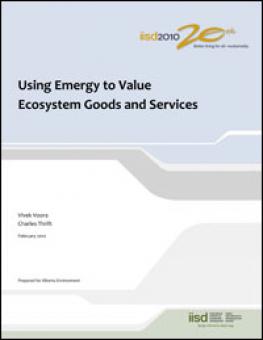
Using Emergy to Value Ecosystem Goods and Services
All goods and services from the environment, society and the economy can be expressed in emergy units; they can be directly compared to assess the condition and sustainability of a system. The emergy approach provides policy-makers and decision-makers with a donor-based valuation system to examine economic and environmental information so that human and natural environments can be better managed.
We examined the advantages and disadvantages of the emergy approach for valuing ecosystem goods and services and found that additional research is required to determine if it should be applied more widely as a valuation technique.
Participating experts
You might also be interested in
Tree Planting for Climate Resilience in Freetown, Sierra Leone
This assessment presents the economic valuation of tree planting efforts in Freetown, Sierra Leone, including planting costs, added benefits, and avoided costs.
Sustainable Asset Valuation of Sherwan Hill Adventure Park in Abbottabad, Pakistan
This report analyzes the social, economic, and environmental benefits of the Sherwan Hill Adventure Park in Pakistan.
December 2024 | Carbon Minefields Oil and Gas Exploration Monitor
In November 2024, 23 oil and gas exploration licences were awarded across five countries, with Russia granting the licences that account for the largest portion of embodied emissions.
Toward a Coherent, Transformative Approach to Financing Sustainable Development, Climate, and Nature
Four key proposals for the Fourth Financing for Development Conference (FfD4) to create an integrated, equitable approach to financing climate, nature, and development goals.